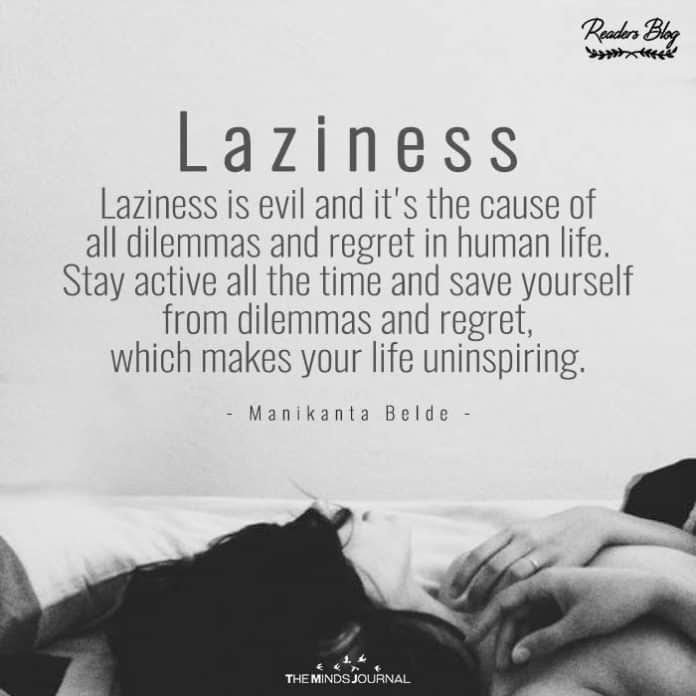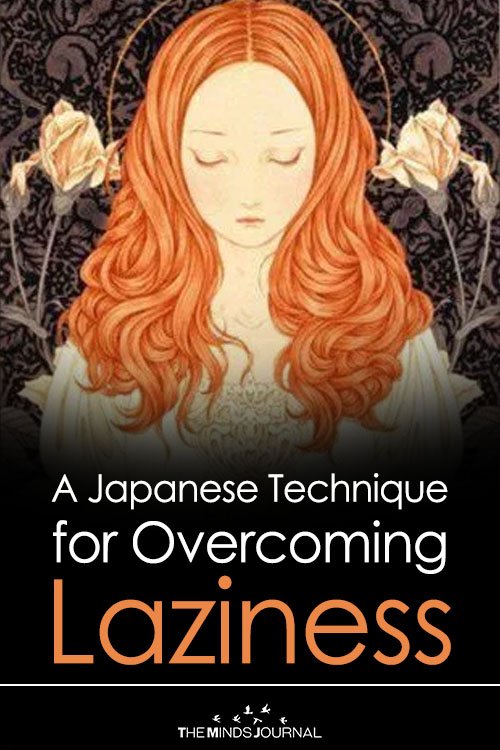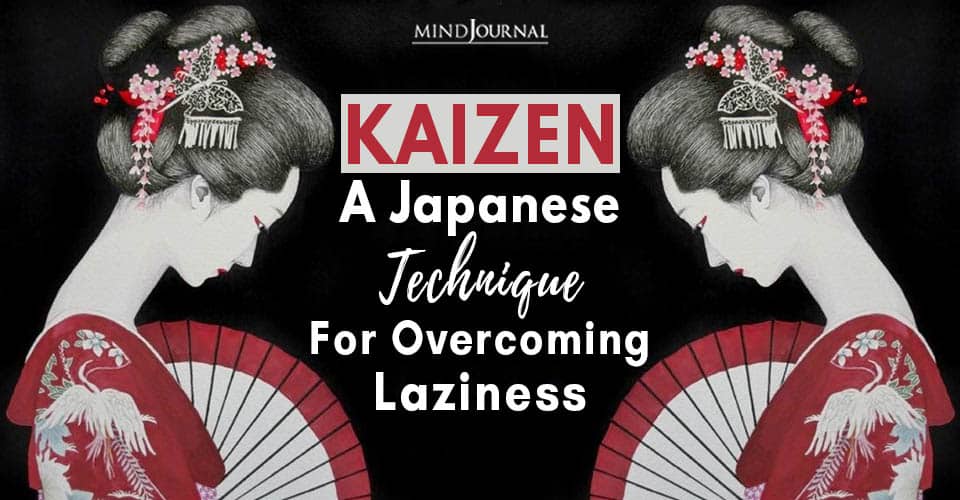Do you think laziness is screwing your life? Have you ever thought of overcoming laziness to improve yourself and live better? If you want to then here is a Japanese technique – kaizen for overcoming laziness.
“If you think adventure is dangerous, try routine; it is lethal.”
― Paulo Coelho
Have you felt that your life has become static? There is no change at all. You think you will try a fitness regime, learn a new language, play an instrument or simply keep a journal – but every time you postpone it. It’s either tomorrow or from Monday, next month or even next year… the goal moves further away. Breaking old habits and replacing them with new ones take time and patience. We simply love comfort.
Challenging yourself to do something is quite a task. We are bursting with enthusiasm in the beginning and gradually it fades away. We try to achieve a lot rapidly, which makes it all the more difficult. Sometimes you need to plan and ponder on your progress instead of expecting magic by waiting.

Read Understanding The Psychology Of Laziness: 7 Strategies For Overcoming Procrastination
So why does this happen?
It is impossible to find one definite cause. If your decisions were always taken by others since childhood, chances are you have no idea about your purpose in life or the power to change what you possess. Psychologists think that a person who is not very motivated is not capable of developing any habit in a short span.
Developing a habit takes at least 21 days. It will take 90 days to form a permanent habit. Going about any business requires skill and discipline. Take small steps at the beginning. “Plans Gromadyo” is a technique for the youth. With conviction and hormones raging in the blood, one can hardly stop midway. To turn off the chosen path seems unthinkable at this stage when one is full of possibilities.
With age, we develop a lot of habits and acquire tastes. Life becomes serious of complications one has to deal with. There is no end to one’s desires and often the willpower falls short. We begin in the natural course and tend to lose track as the task at hand becomes a burden, hence boring. Habits need nurturing and devotion.
Where is the way out?
Kaizen
Japanese philosophy kaizen is unique. It literally means “continuous improvement” from Japanese. “Kai” means change, and “zen” translates to wisdom. It proposes changes that are not made in flux but show reflection and ripe experience.
In Japan, this philosophy was first applied after the Second World War. Companies had been destroyed and in order to speed up the process of regeneration, it was applied. Production or supporting processes in business, management, achieving personal goals, all may seem too much at first.
The concept of “kaizen” spread throughout the world after the Japanese philosopher Masaaki Imai elaborated this idea in his book named the same in 1986. He explained that such a philosophy means the re-orientation of life and all its sectors.
Related: Nunchi: How This Traditional Korean Concept Can Help Build Better Relationships
What is the “one-minute principle”?
The path to your goal is now a minute long! It is a management technique that is sure to show signs of improvement. The crux of the technique is that a person has to deal with a certain task for a minute, but it must happen every day and at the same time. Do not let the short span confuse you; it is so to keep laziness at bay. If you try to keep half an hour to do something, you will come up with tons of excuses and the task will remain unfinished.
You may question the value of a minute. Well, you can read a page, speak in a foreign language, perform exercises and also improve your diction! Consistency is the key. Doing this regularly will give you joy and self-satisfaction, thus inspiring new achievements. If you miss by chance, then do it before going to bed or before breakfast.
Prolonged periods of trying to do new things may have yielded nothing, a minute looks like an easy task, therefore. The guilt of wasting time will fade if you feel content about overcoming laziness. Gradually increase the time, five minutes to an hour without feeling like a mess.
Continuous improvement requires a pattern.
These steps will help you master kaizen
1. Standardize:
It is very important to come up with a process for a specific activity which is organized.
2. Measure:
Evaluate if it is effectively using quantifiable data, such as the average time taken to complete a task and so on.
3. Compare:
Measurements against your requirement is a comparison which proves to be beneficial in all spheres of life. Is it time-consuming? Are you nearer to your goal? Should you try another approach?
Related: Ikigai: The Japanese Secret That’ll Transform Your Outlook On Life
4. Innovate:
The search for new methods is endless and the results are better each time. Innovate smarter routes to the same goal just like Google employees who devote 20% of their time searching for new ways.
5. Repeat:
Go back to step one and start again.
Kaizen enhances ownership and authority over work. Not letting the passion die is a huge task.
However, it is the source of inspiration and proper utilization of energy. Waste of any kind, be it energy, time or even effort is done away with through kaizen. A person automatically becomes more driven and focused. So embrace it and change your life!













Leave a Reply